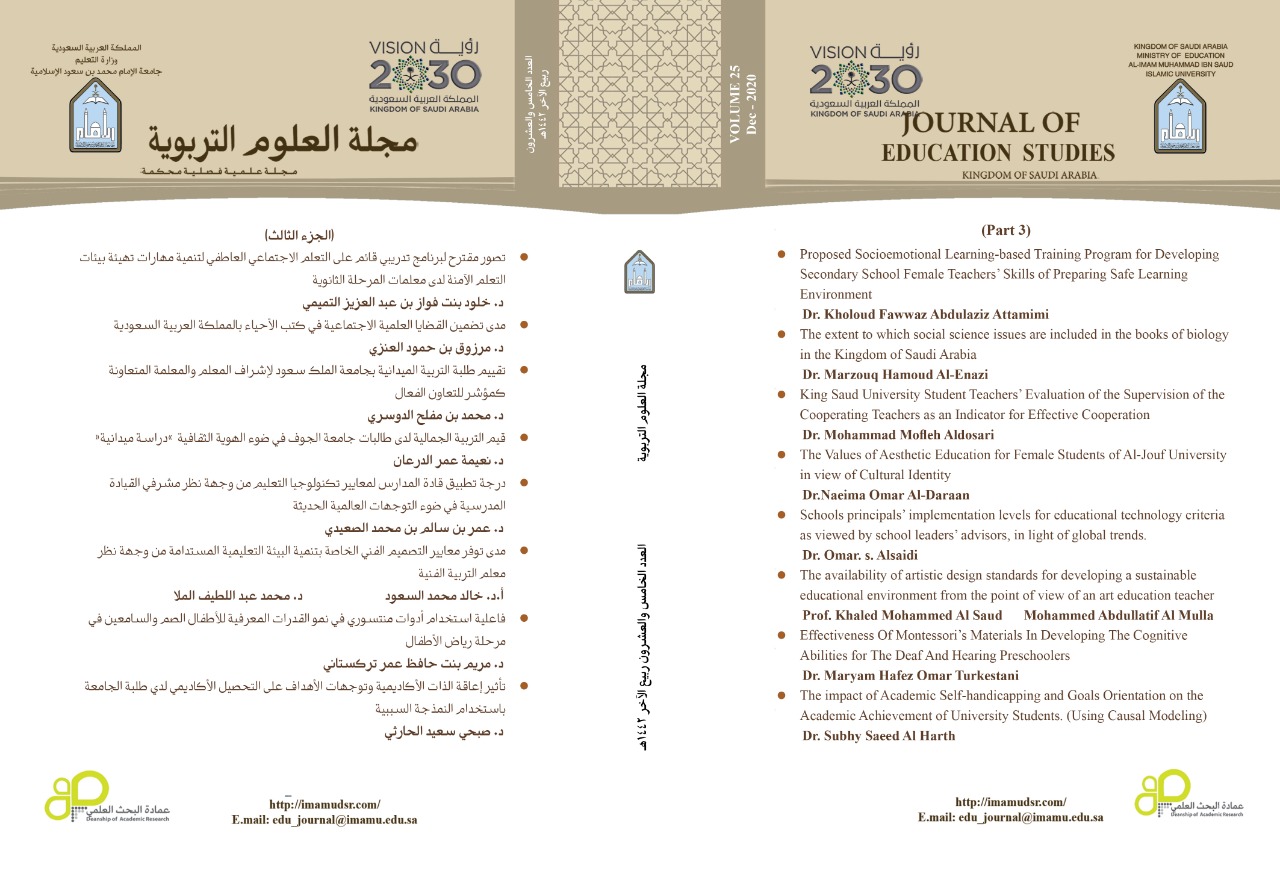The impact of Academic Self-handicapping and Goals Orientation on the Academic Achievement of University Students. (Using Causal Modeling)
Keywords:
Academic self- handicapping, goal orientation, academic achievementAbstract
The present study aimed to study the impact of self-handicapping and the goals orientation on the academic achievement of university students, the research sample reached 202 students (112 male, 90 female). The sample from the academic levels (3-8) from Umm Al-Qura University. Faculties of human sciences scientific faculties their age ranging (21-25) years. The academic self-handicapping measure and the goal orientation scale were applied. The study reached the following results: The correlation coefficient with the dimensions of the goals orientations is statistically significant at the level of 0.01 for all dimensions, but correlation coefficients are positive for the first factor (Mastery approach goals) and the fourth factor (performance –approach goals). Achievement correlation coefficients of the second factor (performance -avoidance goals), third factor (mastery- avoidance goals), and fifth factor (work- avoidance goals) are all negative correlation coefficients, while the self- handicapping correlation coefficient of both achievement and the first and fourth factor of goal orientations are negative but the rest of the goal orientations are positive. There are statistically significant differences between males and females in all research variables except performance goal orientation. In the first dimension of the "goals of mastery" and in academic achievement were differences in favor of females, the second factor "avoid performance" and the third-factor " mastery- avoidance goals " and the fifth-factor " work- avoidance goals " and also self- handicapping differences were in favor of males. There are no statistically significant differences between human and scientific colleges in all orientations of goals and academic achievement as well as self-handicapping. There were direct and indirect effects of goal orientation on academic achievement; Self- handicapping also mediates the impact of goal orientation on academic achievement.




